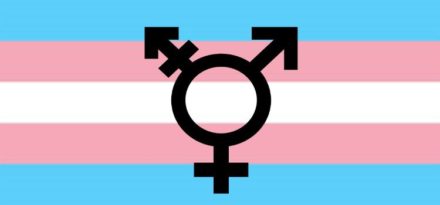
This summer finally saw the launch of the government’s consultation on reforming the Gender Recognition Act to allow self-identification. The consultation had been delayed a year, which created a vacuum that was filled with fears about what self-declaration meant. But self-declaration simply allows a transgender person to have their identity accepted in law. Without legal acceptance, insurance companies can invalidate your insurance and you are potentially liable for prosecution for fraud and gender deception. And self-declaration is far more important for trans people than legal protection. Having your gender recognised is fundamental to affirmative acknowledgement to your identity.
The Gender Recognition Act currently requires trans people to live for 2-4 years in limbo while proving their gender to society and doctors. Even medical professionals have views about gender that are stuck in the ’70s. Standing up to them means medical treatment and documents for a Gender Recognition Certificate are delayed. Needing two doctors’ approval to prove sexuality would seem absurd, so why is there such a big hurdle to have gender identity recognised? The argument made against this comparison is that the state, thankfully, does not record sexuality on documents, and if it did it such a document would not give you the right to access same-sexuality spaces. But this line of reasoning is flawed and based upon misinformation.
Firstly, a Gender Recognition Certificate (GRC) does not give any trans person the right to go into a single sex space – they have this right already clearly written into law by the 2010 Equality Act. Within this act, there are mechanisms that can exclude a transperson if it is proportionate to the need of the single-sex space/occupation, but this exclusion is not affected at all by having a GRC. Secondly, gender is marked in official records, and authorities can check those records if necessary. As the law stands, if ever the justice authorities suspect someone is pretending to be trans, checking the records is meaningless because trans people will have had to have transitioned and be using their single-sex services for at least two years before they could apply for a GRC. If we let people self-declare with a statutory declaration at the beginning of their transition, if ever the need arose, judicial authorities could check to see a transition is genuine.
Labour regarded improving transgender rights as unfinished business when we left power. Unfortunately, it has been a minority Tory government that has introduced reform, a government scared of its own conservative right, and of the right-wing press. Another bit of bad luck is that reforming transgender rights has come during the minority hatred, anti-expert and misinformation era we see post-Brexit and Trump. The majority of Labour members are either supportive of trans rights or wish to hear calm arguments. When I have spoken to women’s groups across the country, I have mostly had a warm supportive reception. The times I haven’t has been when a few vocal activists have shouted the misinformed fear stories from The Daily Mail, The Times, or anti-trans memes online. Even at these meetings, by the end of the discussion there is overwhelming support and the sickening feeling that the transphobes have whipped up hatred, as racists and antisemites have done for centuries.
Be under no doubt the assault on the trans community online is having serious physical consequences too. It has reignited violence towards trans people, mental health problems and suicidal thoughts. Throughout the late ’90s and early 2000s, I could expect to be beaten up and/or sexually assaulted at least once a year. Midway through the Labour government, life had improved for many of us. Unfortunately, the Tories have now legitimised blaming the ‘other’ for society’s ills, while cutting the police force needed to stop violence and abuse. Social media has become a tool to spread bigotry against minorities, and this abuse took off exponentially after Brexit and Trump.
Not so long ago, I was assaulted in a club when a stranger came over and roughly grabbed my crotch and breasts “to see if I was a woman”. I would call that sexual assault, but the police with stretched resources gave it low priority as it was a “lad having a laugh when drunk”. Being pushed over and abused in the street has also become common place again. When it happens now, myself and other trans people have to weigh whether it is worth reporting it to the police at all. Is your indignity worth the time it takes to go through all the police processes, the triggering of old memories of being sexually assaulted and the police’s lack of concern? For the more minor assaults usually it isn’t, but for the rapes and domestic violence support it is, and transwomen need support and safe spaces just as other women do. That is why Rape Crisis Scotland and Scottish Women’s Aid say that that they happily “provide trans inclusive services on the basis of self-identification”.
Now the Gender Recognition consultation is over, LGBT Labour will be working with women’s forums, CLPs, unions and socialist societies to tackle the myths that arose form the consultation. To that end, it’s worth checking out LGBT Labour’s handy myth buster.
Heather Peto is LGBT Labour trans officer and a former parliamentary candidate.




More from LabourList
‘Tackling poverty should be the legacy of Keir Starmer’s government’
‘The High Court judgment brings more uncertainty for the trans community’
‘There are good and bad businesses. Labour needs to be able to explain the difference’